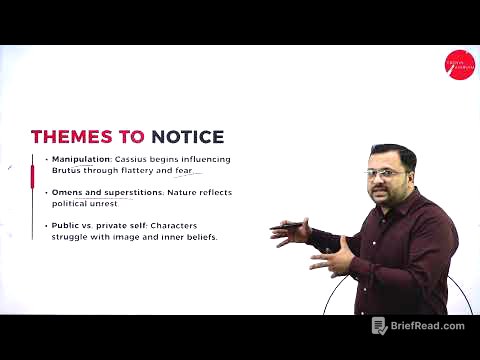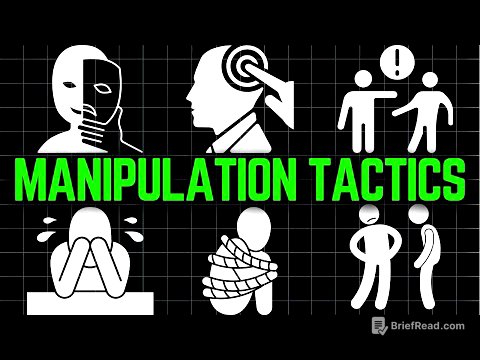TLDR;
This lecture provides an overview of the history of political philosophy, starting from ancient Greece and moving through the medieval period, the Renaissance, and into modern philosophy. It touches on key figures like Plato, Aristotle, Machiavelli, Hobbes, Locke, Rousseau, Kant, Hegel, Habermas, and Freud, and discusses concepts such as the ideal state, the social contract, natural rights, and international relations. The lecture also addresses the shift from ethics-based politics to empirical observation, the role of subjectivity in modern philosophy, and the tension between liberalism and democracy in contemporary global politics.
- Overview of political philosophy from ancient Greece to contemporary thinkers.
- Discussion of key concepts like the social contract, natural rights, and the role of the state.
- Examination of the relationship between ethics and politics, and the influence of subjectivity in modern thought.
Introduction to Political Philosophy [0:04]
The lecture begins with a greeting and an introduction to the course on political philosophy. The instructor mentions that the course will cover thinkers like Machiavelli and contemporary philosophers of critical theory. The aim is to provide a general overview of the history of political philosophy, focusing on modern and contemporary thought due to time constraints.
Ancient Greek Political Thought: Plato and Aristotle [0:00]
The discussion starts with ancient Greece, particularly Plato's "Republic," which explores systems of government and the concept of the philosopher king. Plato's ideal society is presented as an organism, where each member has a specific role. This organicist vision is echoed in contemporary philosophy by Axel Honneth, who discusses social pathology in similar terms. Plato and Aristotle viewed society as an organism, with different social classes having their place. Philosophers are associated with the head, warriors with the trunk, and artisans/merchants with the belly, reflecting their respective roles and concerns.
Hellenistic and Medieval Political Thought [0:05]
The lecture transitions to the Hellenistic period, noting a shift in philosophical focus towards private life due to the decline of the Polis and the rise of figures like Alexander the Great. Ethics is viewed as a form of aesthetics of existence. The discussion touches on the different views of sexuality in ancient Greece compared to the prejudiced views of the Middle Ages, referencing Judith Butler's work on heteronormativity. The medieval period is represented by Augustine's "City of God" and Thomas Aquinas, but the lecture notes a greater emphasis on modern thinkers in political philosophy.
Machiavelli and the Renaissance [0:10]
Machiavelli is presented as a transitional figure in the Renaissance, differentiating himself from the Greeks and medieval thinkers by separating ethics from politics. His focus is on empirical observation and practical political analysis, as seen in "The Prince." Machiavelli's concern is with the practical organization of the state and the behavior of rulers, rather than a pastoral vision of governance focused on spiritual salvation.
Modern Political Philosophy: Hobbes and the Social Contract [0:13]
Hobbes is identified as a key modern philosopher, whose work is relevant to political science, law, and international relations. Hobbes's concept of the state of nature, where life is "nasty, brutish, and short," is introduced, along with his idea of the Leviathan as a powerful state. Despite advocating for an absolutist state, Hobbes opens space for liberal thought by recognizing individual private liberty.
Locke, Rousseau, and Kant: Contractualism and International Relations [0:26]
The lecture discusses Locke's concept of natural rights (life, liberty, and property) and the social contract, where the government's legitimacy depends on protecting these rights. Rousseau's emphasis on the general will and distrust of representation are also mentioned. Kant's "Perpetual Peace" is presented as the first major philosophical proposal for a confederation of world states to end wars, a vision later radicalized by Habermas.
Contemporary Global Politics and the Role of China [0:35]
The lecture shifts to contemporary global politics, discussing the tension between liberalism and democracy and the rise of China as a major economic power. China's approach to international relations, focused on economic engagement rather than imposing political values, is contrasted with the United States' promotion of liberal democracy. The potential for conflict between the U.S. and China is also addressed.
Concluding Remarks and Next Steps [0:42]
The instructor concludes the lecture, summarizing the overview of political philosophy and mentioning the text for the next class discussion.









